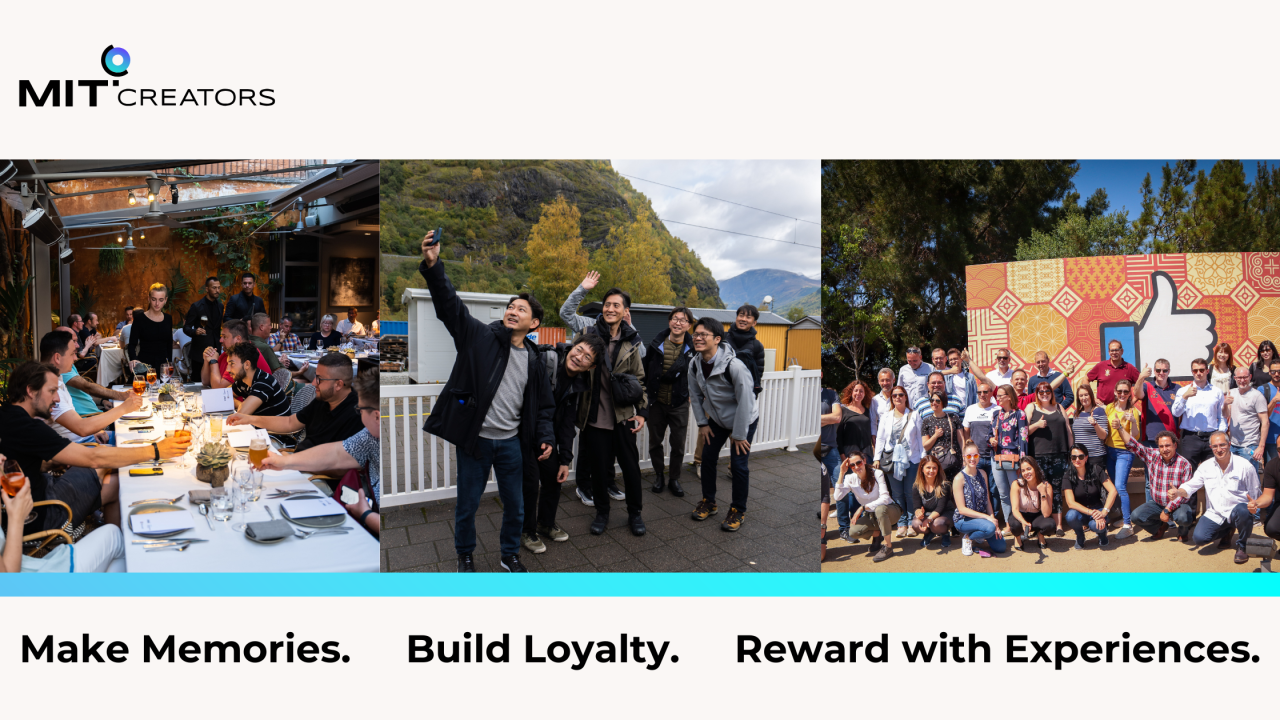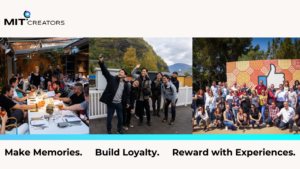The Power of Memories: Why Travel Incentives Make a Lasting Impact.
Think about it: Can you remember how you spent the bonus you received a few years ago? Now, compare that to a moment you traveled somewhere breathtaking—maybe a hike by a crystal-clear fjord or a sunset dinner on a mountain peak. Which memory comes to mind faster?
This is exactly why travel incentives leave a deeper, more lasting impression compared to traditional rewards like cash or gift cards. Let’s dive into the science of experiences and why leading companies are shifting toward incentive travel to engage employees, partners, and clients.
1. Experiences Trigger Stronger Emotional Bonds
Travel activates emotional and sensory experiences that money cannot replicate. Dopamine and serotonin—“feel-good” chemicals—surge when we do something exciting or adventurous. This creates a positive association with the experience and, importantly, the brand that made it possible.
💡 Pro Tip: When participants explore unique destinations like Norway’s Viking Valley or the stunning fjords, they develop positive emotional ties not just with the trip but with your company.
💭 The Hook: Cash is fleeting, but memories are forever. The emotions tied to travel incentives keep participants connected long after the trip is over.
2. Shared Travel Creates Unbreakable Bonds
A travel reward offers something priceless: connection. Picture a team of high performers exploring the Flam Railway together, or enjoying a once-in-a-lifetime rafting adventure on a Norwegian river. The relationships built during these moments are powerful—and they transcend the typical office connection.
In contrast, cash rewards don’t foster interaction or community. They’re transactional by nature and forgotten as soon as they’re spent. Travel incentives foster deeper relationships that encourage teamwork, loyalty, and long-term engagement.
💡 Best Practice: Use travel incentives to create shared moments that spark conversations and transform participants into brand advocates.
3. Intrinsic Motivation Drives Better Performance
There’s something special about knowing that your hard work could lead to a bucket-list adventure. Behavioral psychologists argue that intrinsic motivators—like travel—work better than extrinsic ones (cash bonuses) because they align with personal aspirations and emotions.
💬 Why It Works: A performance trip to a place like Norway isn’t just about the destination—it’s about status and recognition. These experiences tap into participants’ desire to be celebrated and rewarded in meaningful ways, which boosts motivation and productivity.
4. The Power of Storytelling and Memory
We remember experiences far longer than things. People don’t boast about a $1,000 bonus the same way they tell stories of climbing a glacier or networking at a mountaintop restaurant. These experiences become part of participants’ identities—and through their stories, your brand earns a permanent place in their memory.
💡 Pro Tip: When participants return from an incentive trip, they become ambassadors—spreading the story of their experience to colleagues and friends. That’s free promotion for your brand, reinforcing loyalty every time they share it.
5. A Holistic Incentive that Elevates Your Business
When companies shift to travel incentives, they see measurable gains:
- Increased motivation and performance from participants.
- Stronger brand loyalty through emotional experiences.
- Reduced turnover because employees feel truly valued.
💡 Best Practice: Create personalized, thoughtful itineraries with a balance of adventure, relaxation, and networking. Your participants shouldn’t just feel like tourists—they should feel like VIPs.
Travel Incentives Are More Than Rewards—They’re Investments
Travel incentives are about more than rewarding performance—they’re about creating unforgettable moments that strengthen connections, build loyalty, and leave a lasting impression. By offering these experiences, companies set themselves apart, motivating employees and partners in ways that no paycheck ever could.
So the next time you’re thinking about performance rewards, ask yourself: Do you want your top performers to remember a bonus, or do you want them to remember your company as the one that gave them the experience of a lifetime?



